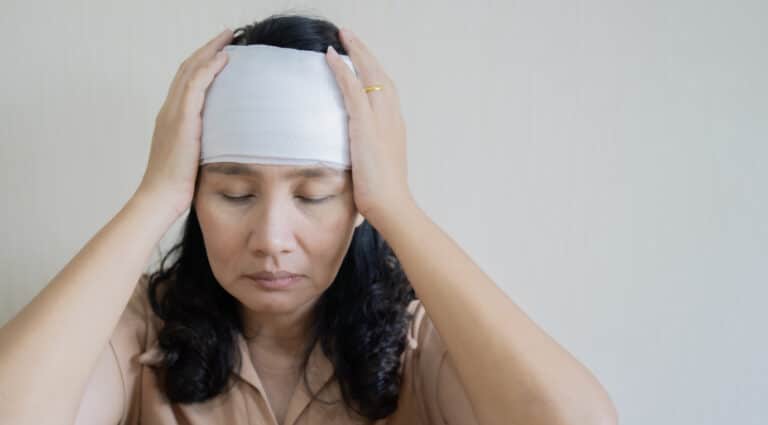If you’ve recently experienced a head injury, you may have noticed that you now experience a ringing, roaring, hissing, whistling, humming, buzzing or other sound in the ears with no external source. These sounds are called tinnitus. Know that this experience is normal, affecting approximately 53% of individuals who sustain a traumatic brain injury. In this post, we review how head injuries and tinnitus are linked and how you can find relief.
Causes of Tinnitus After a Head Injury

Below are some of the most common causes of tinnitus after a head injury:
Ossicular Chain Disruption
The ossicular chain is comprised of three small bones in the middle ear. Their job is to transmit sound from the eardrum to the cochlea. A head injury can cause a disruption in the alignment of these bones, causing both tinnitus and even conductive hearing loss.
Temporomandibular Joint Disorder
Another condition associated with tinnitus that can be caused or exacerbated by a head injury is temporomandibular joint (TMJ) disorder. The TMJ is the hinge that joins your lower jaw to your skull, and it shares ligaments and nerve connections with the middle ear. If it’s damaged when your head is injured, tinnitus can be a result.
Labyrinthine Concussion
A labyrinthine concussion describes when the inner ear becomes damaged due to force from head trauma. Damage to the cochlea can trigger tinnitus as well as sensorineural hearing loss.
Meniere’s Disease
Meniere’s disease describes episodes of hearing loss, dizziness and tinnitus, and one of the potential causes of this condition is head trauma. The condition is associated with abnormal amounts of fluid in the middle ear.
Treatment for Tinnitus After a Head Injury
Unfortunately, there is no cure for tinnitus unless the underlying cause can be identified and addressed. With a head injury, this is oftentimes not possible.
In the case of ossicular chain disruption, surgery can sometimes be performed; however, this surgery is invasive and is only performed in severe cases.
TMJ disorder can sometimes be treated with physical therapy and the use of oral appliances or mouth guards.
Other causes of tinnitus require certain therapies to provide relief. For example, sound therapy using a hearing aid or tinnitus masker can help draw attention away from tinnitus sounds, while cognitive-behavioral therapy can decrease your emotional reaction to your tinnitus.
For more information or to schedule an appointment with a tinnitus expert, call Hearing Systems today.
